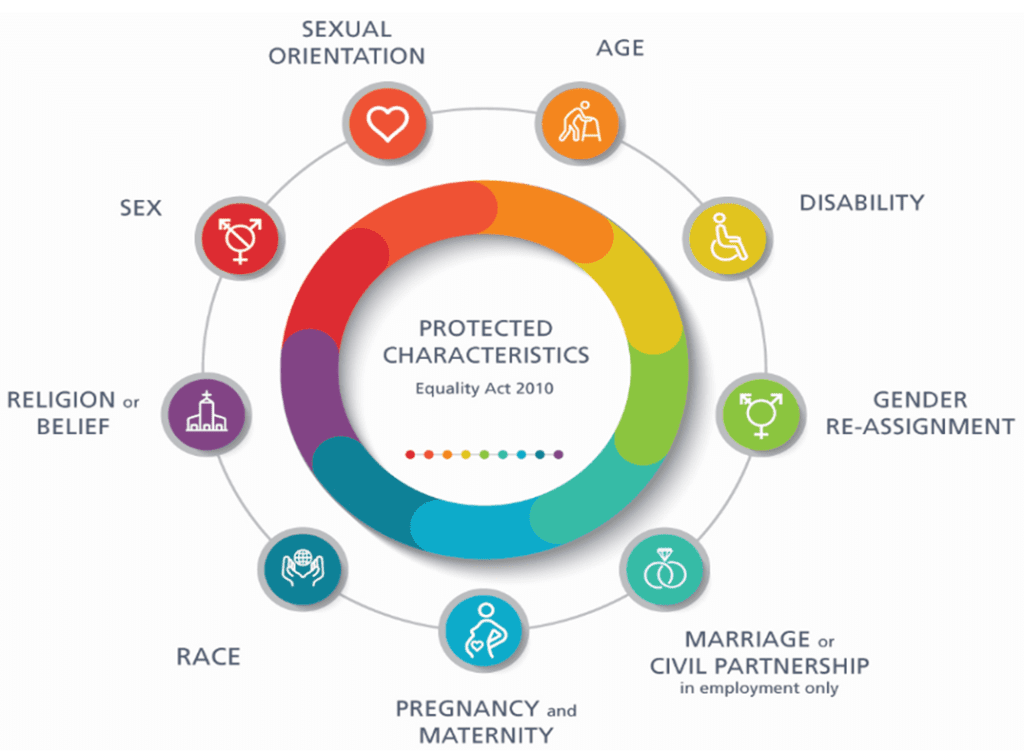Equality, Diversity and Inclusion
Dorset County Hospital NHS Foundation Trust (DCHFT) is committed to creating a diverse and inclusive environment where all our staff, patients and service users feel they can be themselves. We will ensure that no employee or person visiting our hospital will be discriminated against because of who they are.
We are striving to ensure that in everything we do, in everything we say and all the actions we take as an employer and provider of services to our local community, that we eliminate unlawful discrimination, harassment and victimisation, advance equality of opportunity and foster good relations between people who share a protected characteristic and those who do not share it.
Building a culture based on Equality, Diversity and Inclusion helps improve the experience of all our staff and the evidence tells us that improved staff experience is intrinsically linked to improved patient experience, outcomes, and reduced health inequalities. This work also aligns with our four core values which underpin and guide everything we do: Integrity, Respect, Teamwork and Excellence.
Our progress and activities to date include:
- Being a Disability Confident Employer
- Staff Support Networks
- Inclusive leadership training programme
- Coaching and mentoring programmes
- Career conversations and talent development
- Appointment of a Freedom to Speak Up (FTSU) Guardian
- Establishing a network of staff wellbeing coaches
- Welcome packages for overseas recruits
- Inclusive recruitment practices
Equality Compliance
There are a number of legal requirements, national standards and contractual obligations that the Trust must meet to eliminate discrimination and advance equality and cohesion, key ones being:
The Equality Act 2010
The Equality Act 2010 legally protects people from discrimination in the workplace and in wider society. The Act makes it unlawful to discriminate against people on the basis of protected characteristics, which are: age, disability, sex, gender reassignment, pregnancy and maternity, race, religion or belief, sexual orientation, marriage and civil partnerships (Infographic source: Stoke CCG).

Public Sector Equality Duty (PSED)
The Equality Act 2010 brought a new Public Sector Equality Duty (PSED) requiring public bodies to declare their compliance with the duty on an annual basis. This means that we must show compliance with both the general and specific duties of the PSED.
Workforce Race Equality Standard (WRES)
The WRES is a mandatory requirement embedded within the NHS Contract to ensure effective collection, analysis and use of workplace data to address the under-representation of staff from minority communities across the NHS.
The assessment uses nine metrics and requires organisations to submit information about their staff from minority communities, such as their representation per pay band and access to development and promotion opportunities. The standard was launched to ensure that employees from minority communities have equal access to career opportunities and receive fair treatment in the workplace. The WRES results allow us to identify good practice and compare our performance regionally and nationally by type of Trust.
The Workforce Disability Equality Standard (WDES)
The WDES is a set of 10 specific measures (metrics) that enable NHS organisations to compare and better understand the experiences of disabled and non-disabled staff. It will support positive change for existing employees and enable a more inclusive environment for disabled staff working in the NHS. The WDES results allow us to identify good practice and compare our performance regionally and nationally by type of Trust.
Gender Pay Gap Reporting
The Gender Pay Gap regulations were introduced in 2018. All employers with 250 or more employees are required to comply with reporting and action planning each year on seven metrics. This covers: mean gender pay gap; median gender pay gap; mean bonus gender pay gap; median bonus gender pay gap; the proportion of men in the organisation receiving a bonus payment; the proportion of women in the organisation receiving a bonus payment; the proportion of men and women in each quartile pay band.
